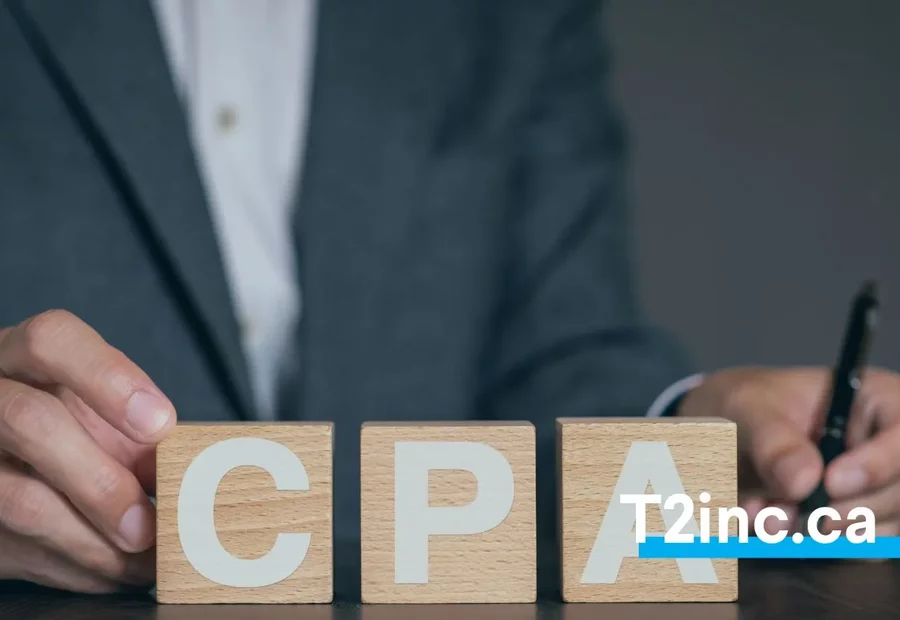Difference Between Accounting and Taxation: What Every Canadian Business Owner Should Know

As a business owner in Canada, you’ve probably wondered: “What’s the actual difference between accounting and taxation? Can my accountant handle both? When should I call a tax specialist?”
These are common questions, especially if you run an incorporated SME and want to stay compliant with both federal and provincial regulations. Yet clearly understanding the difference between accounting and taxation can help you manage your financial situation, meet your tax obligations, and avoid costly errors.
In this article, our team breaks down the core roles of accounting & taxation, and explains why both areas are essential to ensuring compliance with tax laws, improving your company’s financial performance, and supporting long-term success.
What is Business Accounting?
Accounting is the backbone of your company’s financial management. It involves recording, classifying, and analyzing all financial data related to your operations: revenues, expenses, payroll, investments, tax refunds, and more.
The goal? To produce reliable financial statements including the balance sheet, income statement, and cash flow report that reflect your company’s financial position and help you make informed decisions at every stage.
A professional accountant plays a strategic role year-round by:
- Tracking your finances consistently using an appropriate accounting method;
- Helping you stay organized and aligned with accounting standards;
- Preparing documents required by banks, investors, or tax authorities.
In short, a corporate accountant ensures a structured, compliant approach to your accounting and financial operations, aligned with your business goals.
What is Business Taxation?
Business taxation, often confused with accounting, is a separate discipline governed by Canadian tax law and the Income Tax Act. It focuses on a corporation’s tax obligations, including the corporate income tax, both federally (Canada Revenue Agency) and provincially (e.g. Revenu Québec).
Unlike accountants, tax specialists (or tax accountants) are typically involved in complex tax laws and scenarios such as mergers, asset sales, or succession planning—where the company must stay in sync with both federal and provincial tax authorities.
A tax expert typically assists with:
- Filing your T2 Corporation Income Tax Return and CO-17 return in Quebec;
- Applying relevant tax credits and deductions to reduce your tax burden;
- Providing corporate tax planning strategies tailored to your business structure.
Put simply, taxation helps ensure that your business meets all legal requirements while taking advantage of available credits to reduce your tax burden. It’s about ensuring tax compliance in an ever-evolving fiscal environment.
Why the Differences Between Accounting and Taxation Require Collaboration
While accounting and taxation are distinct disciplines, they are closely connected in the day-to-day management of a corporation. Together, they support financial strategies, regulatory compliance, and informed business decisions.
For example, when implementing a strategic financial plan such as deferring income, claiming capital cost allowance (CCA), or transferring assets, it must be backed by accurate accounting records to ensure short- and long-term effectiveness. Similarly, a clean general ledger makes it easier for a tax professional to conduct financial analysis and spot opportunities for tax planning and compliance.
In other words, strong financial management relies on collaboration between your accountant and tax specialist. Their combined expertise in accounting and tax ensures your company meets its tax obligations, enhances its financial performance, and remains compliant with current laws.
That’s why many SMEs benefit from working with tax and accounting services that coordinate seamlessly, like the model offered by T2inc.ca and its network of trusted partners. This integrated approach supports compliance, tax efficiency, and peace of mind.
Comparison Table: Accounting vs Taxation
| Criteria | Accounting | Taxation |
|---|---|---|
| Main Purpose | Overall financial tracking | Tax optimization and legal compliance |
| Key Professional | Accountant, CPA | Tax specialist, tax advisor |
| Main Tools | Financial statements, bookkeeping records | T2/CO-17 returns, tax planning strategies |
| Frequency | Year-round, ongoing | Seasonal or event-driven (year-end, restructuring) |
| Key Value | Decision-making and operational management | Tax savings and government compliance |
Tax and Accounting Services in Action: A Real-Life SME Example
Imagine you run an incorporated SME based in Montreal. Your accountant manages your company’s day-to-day operations: tracking sales, expenses, payroll, and taxes. They produce your business’s financial statements annually and ensure accurate financial reporting.
But when it’s time to file your T2 and CO-17 tax returns, your accountant works in tandem with a tax specialist. The tax expert ensures that your corporate income is reported correctly, relevant deductions are claimed, and all filing tax returns are handled in full compliance with tax laws. They also help prepare financial statements in alignment with both accounting standards and fiscal requirements, minimizing risk under complex tax laws and strengthening your company’s financial position.
The result: your company avoids penalties and maximizes its tax efficiency through a smart, coordinated approach.
Accounting vs Taxation: Frequently Asked Questions
💬 What’s the difference between a tax specialist and an accountant for an incorporated business?
An accountant manages day-to-day financial tasks like bookkeeping, payroll, and financial statements. A tax specialist, on the other hand, focuses on corporate tax returns, strategic tax planning, and complex situations such as reorganizations or asset transfers. Both roles are complementary and essential for your company’s financial success.
💬 Can my accountant handle my corporate taxes?
For simple business structures, many accountants also prepare corporate tax returns. However, as your company grows or your situation becomes more complex (e.g. multiple entities, restructuring, or international considerations), working with a tax specialist becomes a significant advantage.
💬 Is it better to have one point of contact for both accounting and taxation?
Yes. If that contact coordinates both functions effectively. At T2inc.ca, we work with experienced external accountants and our internal tax specialists to offer an integrated solution. This ensures better communication, saves time, and gives you a full view of your business’s financial and tax position.
💬 How do I choose the right accountant for my incorporated business?
Look for an accountant who understands Canadian corporate structures and has experience working with incorporated SMEs. Make sure their services align with your needs (bookkeeping, payroll, financial reports) and that they can collaborate with your tax advisor. A good accountant should help you make informed decisions and ensure ongoing compliance.
💬 How do I choose the right tax specialist?
A qualified tax specialist should know both federal (CRA) and provincial (e.g. Revenu Québec) tax regulations. Look for someone experienced in filing T2 income tax returns and CO-17 returns and capable of assisting with tax optimization, restructuring, or succession planning. Their ability to work in tandem with your accountant is key to success.
Our Corporate Tax Experts Help You Understand the Difference
To sum up, accounting gives you a clear picture of your business’s financial reality, while taxation ensures compliance and optimizes your tax position. For any Canadian corporation, these two areas of expertise are complementary and essential.
At T2inc.ca, our in-house tax specialists work in partnership with external accounting professionals to deliver complete support, from T2 and CO-17 corporate tax returns to structured bookkeeping and financial reporting.
This ensures proper financial management while staying compliant with your legal obligations as an incorporated business in Canada.
Contact us to discuss your situation. No cost, no obligation.
Contact our experts
Have a question? Need help? Fill out our online form to get help from our experts.
Contact usNeed more help?
Contact us by filling out our form
Are you interested in our services, but would like more information before taking the plunge? Contact us today and one of our tax accountants will be in touch to help you.
At T2inc.ca, we're committed to helping business owners manage their company's tax affairs so they can grow their business.




